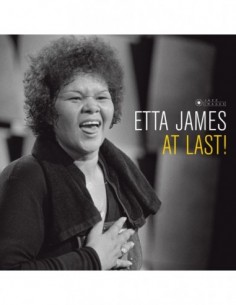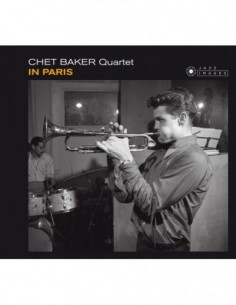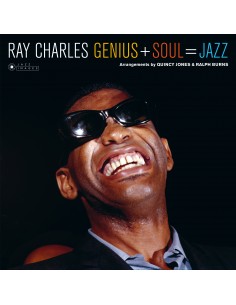Alone Together
Chet BakerTHE JEAN-PIERRE LELOIR COLLECTION
3 PANEL DIGIPACK EDITION
INCLUDES 1 BONUS TRACK
Chet Baker and Bill Evans were both highly lyrical and introspective players who could have made a marvelous team, but they only recorded together on a couple of occasions. This CD contains all of their existing collaborations, consisting of the complete LP Chet – "The Lyrical Trumpet of Chet Baker" (Riverside RLP-1135), which includes the climactic “Alone Together”, and a single session playing songs by Lerner & Loewe. Chet’s previous version of “Alone Together”, recorded in Paris in a quartet format, has been added as a bonus.
PERSONNEL:
CHET BAKER, trumpet
BILL EVANS, piano
On all tracks, plus:
ON TRACKS [1-10]: CHET –The Lyrical Trumpet of CHET BAKER
HERBIE MANN, flute
PEPPER ADAMS, baritone sax
KENNY BURRELL, guitar (on 3 & 6 only)
PAUL CHAMBERS, bass
CONNIE KAY, drums
PHILLY JOE JONES, drums (on 4 & 8-9)
New York, December 30, 1958 (1-3, 5-7 & 10) & January 19, 1959 (4 & 8-9).
ON TRACKS [11-14]:
HERBIE MANN, flute (out on 13)
ZOOT SIMS, alto sax (on 11 & 14); tenor sax (on 12); (out on 13)
PEPPER ADAMS, baritone sax (out on 13)
EARL MAY, bass
CLIFFORD JARVIS, drums
New York, July 22, 1959.
[15] BONUS TRACK:
Chet Baker (tp), Raymond Fol (p), Benoit Quersin (b), Jean-Louis Viale (d).
Paris, France, November 28, 1955.
TRACKS:
01 ALONE TOGETHER
02 HOW HIGH THE MOON
03 IT NEVER ENTERED MY MIND
04 ‘TIS AUTUMN
05 IF YOU COULD SEE ME NOW
06 SEPTEMBER SONG
07 YOU’D BE SO NICE TO COME HOME TO
08 TIME ON MY HANDS
09 YOU AND THE NIGHT AND THE MUSIC
10 EARLY MORNING MOOD
11 I COULD HAVE DANCED ALL NIGHT
12 THANK HEAVEN FOR LITTLE GIRLS
13 I TALK TO THE TREES
14 SHOW ME
15 ALONE TOGETHER
TOTAL TIME: 75:59
- Format
- CD
- Discs
- 1
- Label code
- 38003
 Cookie preferences
Cookie preferences





















































